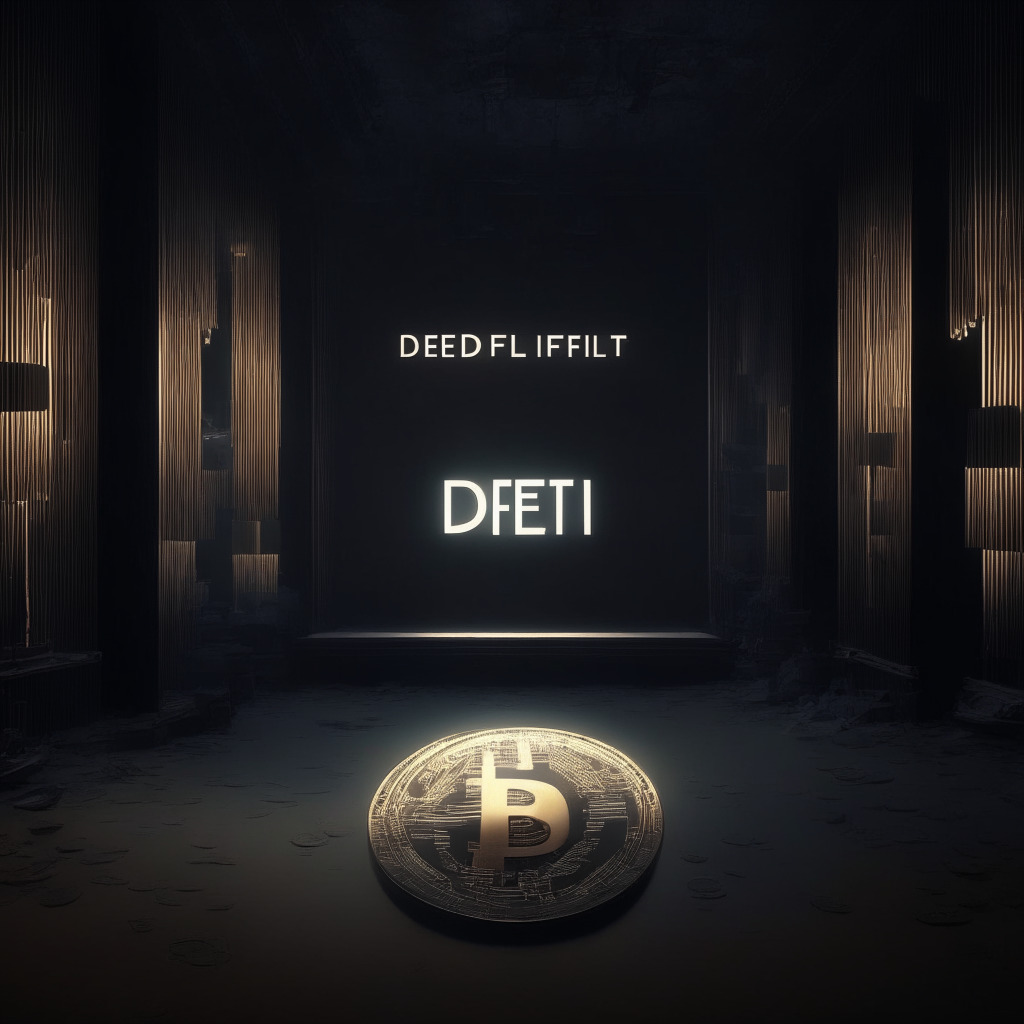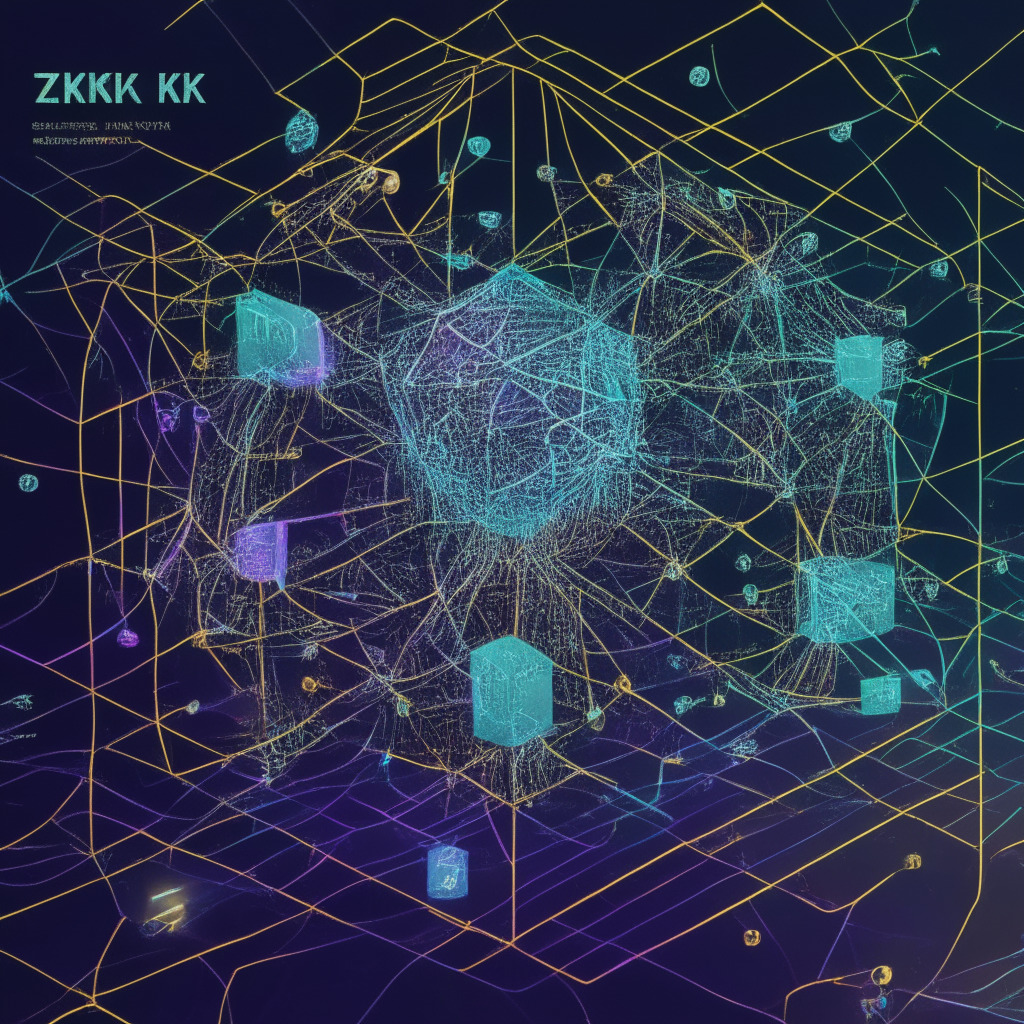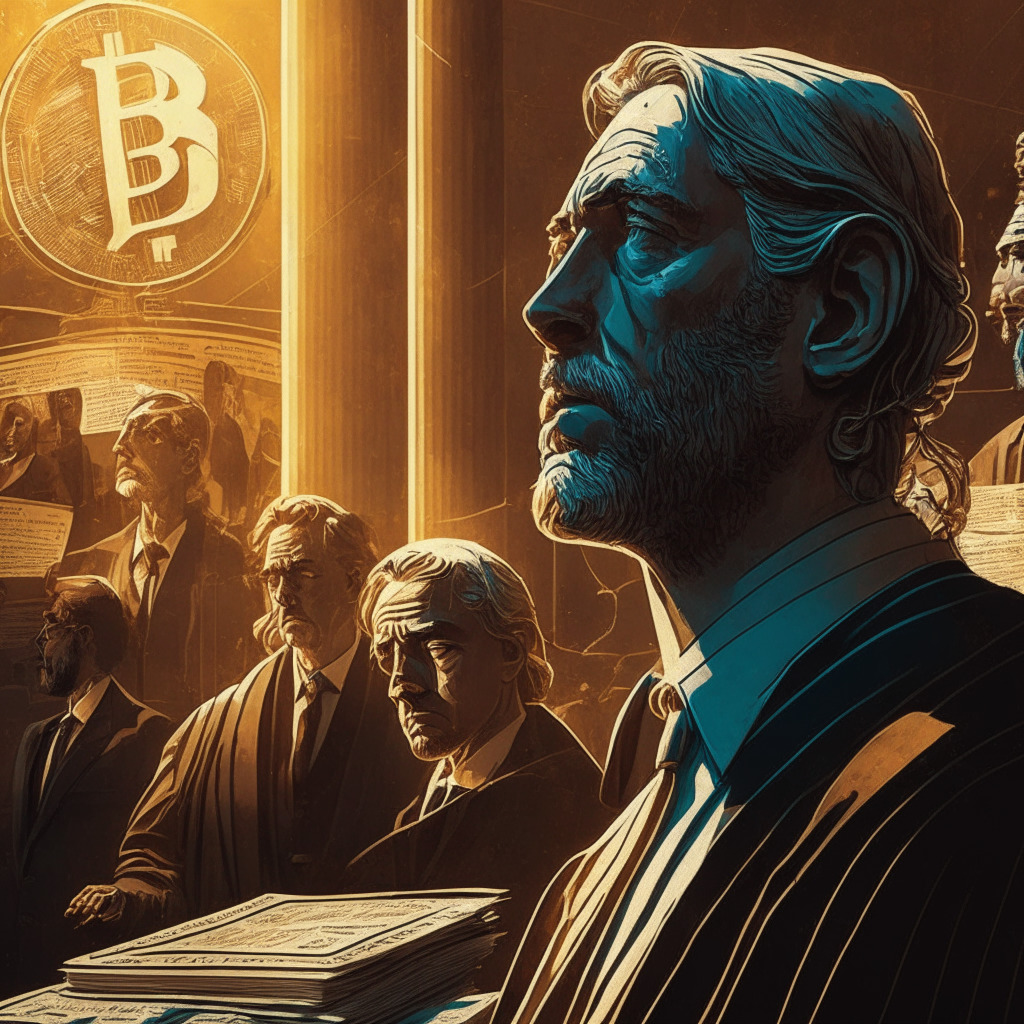NFTrade, an NFT marketplace, has introduced cross-chain purchases and payments on Ethereum, BNB Chain, Polygon, and Avalanche via partnership with Rarimo. This enables users to initiate a purchase on one network and pay on another seamlessly, improving the Web3 user experience.
Search Results for: Avalanche
Hong Kong SFC Crypto Regulation Update: Impact on Top Digital Assets and Market Debates
Hong Kong’s Securities and Futures Commission (SFC) has concluded its consultation on crypto asset rules, potentially boosting the popularity and value of selected digital assets. However, debates remain over selection criteria, stablecoin exclusion, and limitations on EARN and lending services.
Aave V2 Polygon Bug: How It Happened and the Road to Recovery
Aave V2 users on the Polygon blockchain have faced difficulties accessing funds due to a faulty upgrade in the ReserveInterestRateStrategy contract, affecting various token holders. Despite challenges, Aave governance proposed a solution and continues to address the issue while maintaining platform stability.
US Debt Ceiling Stalemate: Implications for Bitcoin and Global Crypto Adoption
Bitcoin’s price hovers near $26,800 amidst uncertainty surrounding the US debt-ceiling stalemate, raising questions about the impact on cryptocurrencies if the government defaults. As centralized institutions face challenges, the role of cryptocurrencies as a hedge in developing nations gains attention, fueling discussions around their real-world utility and inherent value.
Downturn in Bitcoin Products: Analyzing Shifts in Crypto Investment Strategies
Digital asset investment products face a downturn with outflows for the fifth consecutive week, primarily from Bitcoin products. CoinShares report shows a staggering $232 million in outflows, indicating a shift in crypto investment strategies as altcoins perform better. Investors must remain vigilant and diversify their portfolios in this unpredictable market environment.
Bowling Achievements Turned NFTs: Pros, Cons & the Future of Digital Awards
The Professional Bowlers Association (PBA) and Bowlero have launched League Bowler Certification Awards, tokenized achievements in the form of non-fungible tokens (NFTs), on the Avalanche blockchain. These soulbound tokens will be airdropped to around 300,000 Bowlero league participants to recognize their bowling accomplishments, paving the way for blockchain integration in the sports industry.
Openfort’s Wallet-as-a-Service: Revolutionizing Crypto Gaming or Overhyping Infrastructure?
Crypto startup Openfort raised $3 million to develop its wallet-as-a-service software for game developers and publishers. Offering frictionless wallet technology via APIs, Openfort aims to simplify and enhance the gaming experience by abstracting cumbersome crypto transaction elements and supporting Ethereum-compatible networks.
Aave’s Polygon Issue: Funds Stuck, Solution Hinges on Crucial Governance Vote
Aave recently faced an issue with its V2 Polygon platform, preventing users from interacting with Wrapped Ether, Tether, Wrapped Bitcoin, and Wrapped Matic pools, and withdrawing assets. Aave V2’s ReserveInterestRateStrategy upgrade is incompatible with Polygon, impacting assets worth $110 million. Aave assures funds are safe, pending a governance vote to resolve the issue.
Centralized vs Decentralized CLOBs: Pros, Cons, and the Future of Trading Financial Instruments
The central limit order book (CLOB) has transformed financial instrument trading, but the rise of decentralized finance (DeFi) platforms raises questions over centralized vs decentralized CLOBs (dCLOBs). While dCLOBs offer a trustless, permissionless environment, centralized CLOBs provide better pricing and faster execution. Technologies like Avalanche subnets improve DeFi, but dCLOBs face challenges like limited functionalities compared to centralized systems.
Bakkt Delists 25 Tokens: Balancing Regulatory Risk and DeFi Innovation
Bakkt has removed support for 25 out of 36 tokens offered by its newly-acquired platform, Apex Crypto, to reduce exposure to risk amidst regulatory changes. This may protect investors but raises concerns about the impact of regulation on DeFi innovation.
Crypto Market Plummets: Analyzing BTC and ETH Losses amid Dollar Surge and NFT Downtrend
Bitcoin (BTC) and Ethereum (ETH) experienced moderate losses as the weekend approached, despite a slight surge earlier in the week. Rising dollar value, NFT trading volume drop, and high transaction fees contributed to the decline. Meanwhile, American crypto exchange Bittrex filed for bankruptcy amid regulatory struggles.
Bakkt Delists DeFi Tokens: Compliance Triumph or Barrier to Crypto Innovation?
Bakkt has decided to delist numerous digital assets, including prominent DeFi tokens, in response to regulatory guidance and industry developments. This move raises questions about the future for investors and projects while highlighting the significance of ongoing regulatory developments and the impact on the cryptocurrency landscape.
FedNow and Metal Blockchain Integration: Stablecoins, Privacy, and Financial Future Debated
The Federal Reserve’s upcoming integration with Metal Blockchain has sparked debates on stablecoins, privacy, and financial system plans. Metal Blockchain’s collaboration with instant payment service FedNow aims to enable rapid stablecoin conversions and potentially create interconnected “bank chains” for a secure, oracle-independent blockchain ecosystem.
MetaMask and PayPal Join Forces: Revolutionizing Crypto Accessibility in the US and Beyond
The collaboration between MetaMask and PayPal enables American users to buy ETH and transfer it between the platforms, making cryptocurrency more accessible. This partnership expands PayPal’s crypto assets and introduces the “Buy Crypto” feature within MetaMask, reflecting an exciting future for blockchain technology and crypto markets.
Chia Network Enters Web3 Gaming: Facing Giants and Redefining the NFT Landscape
Chia Network launched the Chia Open Digital Economy (CODE) framework, aiming to empower an open metaverse of games and applications with interoperable assets. Chia announced a proof-of-concept trading card game, ChiaTCG, embracing Chia NFTs and turning them into playable cards, showcasing the potential of NFTs within gaming.
Aave Deploys on Ethereum’s Metis: The Future of DeFi and Layer-2 Scaling Showdown
Aave deploys on Ethereum layer-2 scaling platform Metis, bringing DeFi features and products to the ecosystem. Metis users gain access to DeFi borrowing and lending services, efficient asset borrowing, enhanced risk management, and reduced transaction fees through gas optimization.
Crypto Lender Voyager’s Self-Liquidation: Risks, Recovery Rates, and Regulatory Pressures
Bankrupt crypto lender Voyager Digital announces self-liquidation after failed acquisition deals with FTX and Binance.US. Customers now face a recovery rate of only 36% of their crypto holdings, significantly lower than initially expected. Liquidation of select digital assets will affect major cryptocurrencies like Algorand, Celo, and Avalanche.
Sui’s Entrance into Web3 Gaming: Unique Features Attract Game Developers & Revolutionize NFTs
Layer-1 blockchain network Sui enters the Web3 gaming ecosystem with unique capabilities, enabling parallel transaction processing, horizontal scaling, and dynamically-updated NFTs. Attracting over 40 games to build on it, Sui’s object-based model and gaming-oriented features offer developers an appealing alternative in blockchain-based gaming.
AI-Driven Financial Management: Revolutionizing Personal Finances or Risky Alternative?
ChatGPT offers personalized financial advice on budgeting, investing, debt management, savings, and retirement planning using AI-driven insights. However, concerns about reliability and biases in AI algorithms arise, questioning whether it can replace human expertise in personal financial management.
Voyager Digital’s Asset Recovery: Liquidation vs Digital Reimbursement Debate
Crypto broker Voyager Digital focuses on returning assets to customers after failed deals with FTX US and Binance US. It plans to liquidate certain digital assets, while returning major cryptocurrencies at a 36% recovery rate. The uncertain regulatory climate and previous exposure to a failed crypto hedge fund contribute to the challenges faced by Voyager and the crypto industry.
Alibaba’s Metaverse Launchpad and Web3’s Impact on Mainstream Industries: Embracing or Warning?
Major Web2 players, including Alibaba and Sports Illustrated, are entering the Web3 space, launching metaverse and NFT platforms on blockchains like Avalanche and Polygon, signaling growing interest and integration of Web3 technology into mainstream experiences.
Exploring Near, Gala, Curve DAO & Uwerx: Portfolio Growth vs Risks in Crypto Investing
This article examines four digital assets capturing investor attention: NEAR Protocol (NEAR), Gala (GALA), Curve DAO (CRV), and presale-stage token Uwerx. These cryptocurrencies offer unique portfolio growth opportunities along with potential risks, emphasizing the importance of thorough research and a balanced approach for successful investing.
SushiSwap’s v3 Liquidity Pools Revolution: Game Changer or Risk Multiplier?
SushiSwap is launching new v3 liquidity pools across 13 networks, including Ethereum, Arbitrum, Polygon, BSC, and Avalanche, to increase trading volumes and liquidity while mitigating financial risks. The pools offer greater flexibility, improved slippage tolerance, cross-chain support, and an enhanced smart-order system for users. However, potential drawbacks include technical difficulties and untested efficiency claims.
Crypto Market’s Mixed Response to Fed’s Interest Rate Hike: Analyzing Gains and Losses
Mixed response to the US Federal Reserve’s interest rate hike saw Bitcoin’s volatile performance, briefly reclaiming the $29,000 mark. Ethereum experienced a 2% increase while some altcoins showed gains. Due to the ever-changing market, it’s crucial for crypto enthusiasts to consider risks and research thoroughly before investing.
Bitcoin’s Struggle for $29k: How Interest Rates Affect Crypto Markets and Altcoin Stability
Bitcoin attempted to reach the $29,000 mark but was halted, while altcoins exhibited minimal volatility. Despite recent fluctuations, Bitcoin’s market cap remains at 47% dominance over altcoins. Investors should stay vigilant and be prepared for more market volatility due to potential interest rate changes by the US Federal Reserve.
Defamation Lawsuits Impact on Crypto: Striking the Balance Between Free Speech & Regulation
Ava Labs founder Emin Gün Sirer wins $3 million defamation lawsuit against cryptocurrency influencer, Emre Aksoy, who falsely accused Sirer of terrorist ties. The case highlights the delicate balance between free speech, market competition, and reputation protection in the blockchain and cryptocurrency space, emphasizing the need for robust regulatory frameworks.
Bitcoin Volatility Plagues Market: Navigating Uncertainty and Long-Term Potential
Bitcoin faced volatility dropping below $28,000, while altcoins like Binance Coin experienced losses. Amid uncertainty from the upcoming Federal Open Market Committee meeting, the crypto market experienced turbulence, with a $50 billion market value decline. Despite fluctuations, the potential of cryptocurrencies and blockchain technology remains.
Bitcoin’s Rollercoaster Ride: Binance Coin Defies the Odds Amid Market Slump and Altcoin Red Sea
Bitcoin’s recent rollercoaster ride has seen significant fluctuations in value, with volatility being especially noticeable […]
Crypto Fiesta or Regulatory Siesta? Consensus 2023 Highlights the Battle for Blockchain’s Future
The Consensus 2023 festival wrapped up in Austin last week setting new attendance records and […]
Mastercard Unveils Crypto Credential: Trusting Blockchain Interactions with a Splash of Web3 Humor
Mastercard, the US payment giant, has recently launched a new Web3 solution called “Mastercard Crypto […]
Bridging the Gap: Circle’s Cross-Chain Protocol and Visa’s Crypto Project Revolutionize Stablecoin Payments
Circle, a global fintech firm, recently launched a cross-chain protocol that enables seamless USDC transfers […]
Weekend Snooze: Bitcoin’s Calm Dominance and the Altcoin Slumber Party
The calm weekend in April witnessed Bitcoin’s quiet dominance north of $29,000, and the altcoins […]































